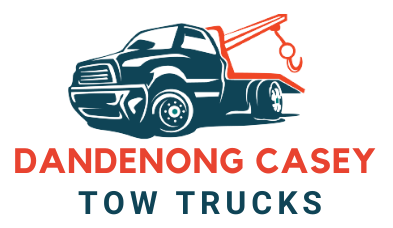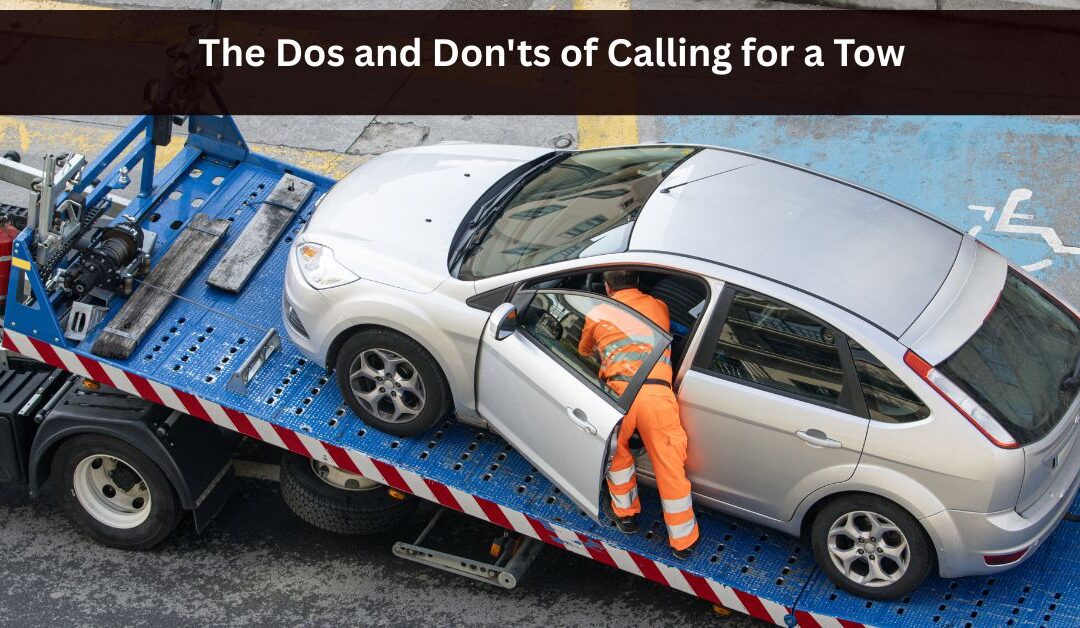When your vehicle breaks down, gets into an accident, or experiences any other issues that make it undriveable, calling for a tow is often the most efficient way to resolve the situation. However, there are right and wrong ways to go about requesting a tow. Knowing what to do—and what to avoid—can make the entire experience smoother, safer, and more cost-effective. Here are the key dos and don’ts to keep in mind when you need to call for a tow.
Do: Assess the Situation Carefully
Before you call a towing service, take a moment to assess the situation. Understanding the extent of your vehicle’s damage will help you provide accurate information to the tow truck operator and allow them to send the appropriate equipment.
If you’re in an accident, ensure that everyone is safe and call emergency services first if needed. If you’re dealing with a mechanical failure or a flat tire, ensure that the vehicle is in a safe position before calling. Your own safety should be the priority, so if your car is on the side of a busy road, stay inside the vehicle (if it’s safe) and turn on your hazard lights to alert other drivers.
Don’t: Panic or Rush the Process
It’s natural to feel stressed or frustrated when your vehicle breaks down, especially if it’s in an inconvenient location or the damage is severe. However, panicking or rushing through the process can lead to poor decision-making. Take a deep breath, gather your thoughts, and focus on gathering the necessary details before making the call.
Rushing through the process of calling for a tow can result in miscommunication, such as providing inaccurate details about your vehicle’s location, condition, or towing preferences. Take the time to calmly assess the situation before making the call to ensure that the tow truck operator has all the information they need to help you efficiently.
Do: Provide Clear and Accurate Information
When you call a towing company, be prepared to provide clear and accurate details about your situation. The tow truck operator will need to know several key pieces of information to send the right kind of tow truck and ensure a smooth process.
This includes:
The exact location of your vehicle, including any landmarks, addresses, or intersections.
A description of your vehicle, including make, model, and color.
The reason for the tow, such as an accident, breakdown, or mechanical failure.
Whether or not your vehicle is drivable and the extent of any damage.
If you require any additional services, such as emergency lockout assistance or flat tire change.
Being as detailed and specific as possible will help the towing company send the appropriate truck and equipment to assist you. Clear communication can also prevent any misunderstandings and ensure that the process goes smoothly.
Don’t: Call for a Tow Too Early or Too Late
It can be tempting to immediately call for a tow as soon as you experience any kind of problem, even if it’s a minor issue. However, calling for a tow too early may not be necessary. Sometimes, issues like a flat tire or a dead battery can be resolved with basic roadside assistance or minor repairs, saving you the hassle and expense of towing.
On the other hand, waiting too long to call a tow service can cause further damage to your vehicle, especially if you’re dealing with a mechanical failure. If the issue is serious and you continue to drive, you could exacerbate the problem, leading to more expensive repairs. As soon as you recognize that your vehicle is beyond your ability to repair, or if it’s unsafe to drive, it’s important to call for a tow.
Do: Confirm the Tow Service and Costs
Before agreeing to the tow, confirm the details of the service and any associated costs. Different towing companies have different pricing structures, so it’s important to ensure that you know the rates before the tow truck arrives. Ask about the base price for a tow, any additional fees (such as distance charges, after-hours rates, or extra services), and the estimated time of arrival for the tow truck.
Understanding the costs upfront will help prevent any surprises when the tow is completed. If you’re calling a towing service through your insurance provider, check whether the cost is covered under your policy and whether you need to pay anything out of pocket.
Don’t: Leave Valuables in the Vehicle
When your vehicle is being towed, it’s important to remove any personal valuables and items from inside. Tow truck operators generally advise that you take personal belongings with you for safety reasons. This is especially important if your vehicle is being towed to a storage lot, as it may not be possible to retrieve items until you’ve arranged a proper pickup.
Leaving valuables in your vehicle can also make it more vulnerable to theft. For both safety and peace of mind, take your belongings with you when your car is towed. If you cannot remove items due to time constraints, make sure to notify the towing company, so they’re aware of any valuable items left inside.
Do: Stay Safe While Waiting for the Tow
While you wait for the tow truck to arrive, ensure that you are safe and visible. If your vehicle is in a hazardous location, like on the shoulder of a busy highway, stay inside your vehicle with the doors locked, especially at night or in poor weather conditions. Turn on your hazard lights to alert other drivers of your location. If you need to wait outside, stand at a safe distance away from traffic, and use reflective triangles or flares if available.
It’s also a good idea to stay in contact with the towing company and provide updates if necessary. If your situation changes (for example, you’ve been able to move your car or someone else has helped you), let the tow company know as soon as possible.
Don’t: Ignore the Towing Company’s Instructions
When the tow truck arrives, be sure to follow the operator’s instructions carefully. They are trained professionals who know the best ways to handle your vehicle safely and efficiently. Ignoring their advice can lead to unnecessary complications or damage.
For example, if the operator asks you to stay in the vehicle while the tow is being prepared, don’t attempt to get out unless it’s absolutely necessary. Additionally, if they recommend using a particular method of towing (such as using a flatbed truck instead of a traditional hook-and-chain method), respect their expertise.
The tow truck operator is there to make sure your vehicle is transported securely. Let them handle the process and avoid interfering with the tow unnecessarily.
Do: Keep Track of Tow Information
Once your vehicle is on its way, make sure you have the necessary information about where it’s being taken. Get the name of the towing company, the address of the drop-off location, and any additional contact information you may need to retrieve your vehicle later. This will help avoid any confusion when it’s time to pick up your car or make arrangements for repairs.
Keep the receipt and any other documentation provided by the towing company, as this may be needed for insurance purposes or if there are any disputes regarding the tow.
Conclusion
Calling for a tow is a straightforward process, but making the right decisions along the way can make a huge difference in your experience. By following the dos and avoiding the don’ts, you can ensure that your tow is handled professionally, efficiently, and safely. Whether you’re dealing with a breakdown, an accident, or an emergency, knowing how to handle the situation can save you time, money, and unnecessary stress.
Contact Us
Dandenong Casey Tow Trucks
50 Fitzgerald Road
Hallam VIC 3803
(03) 7042 2011


Recent Comments